
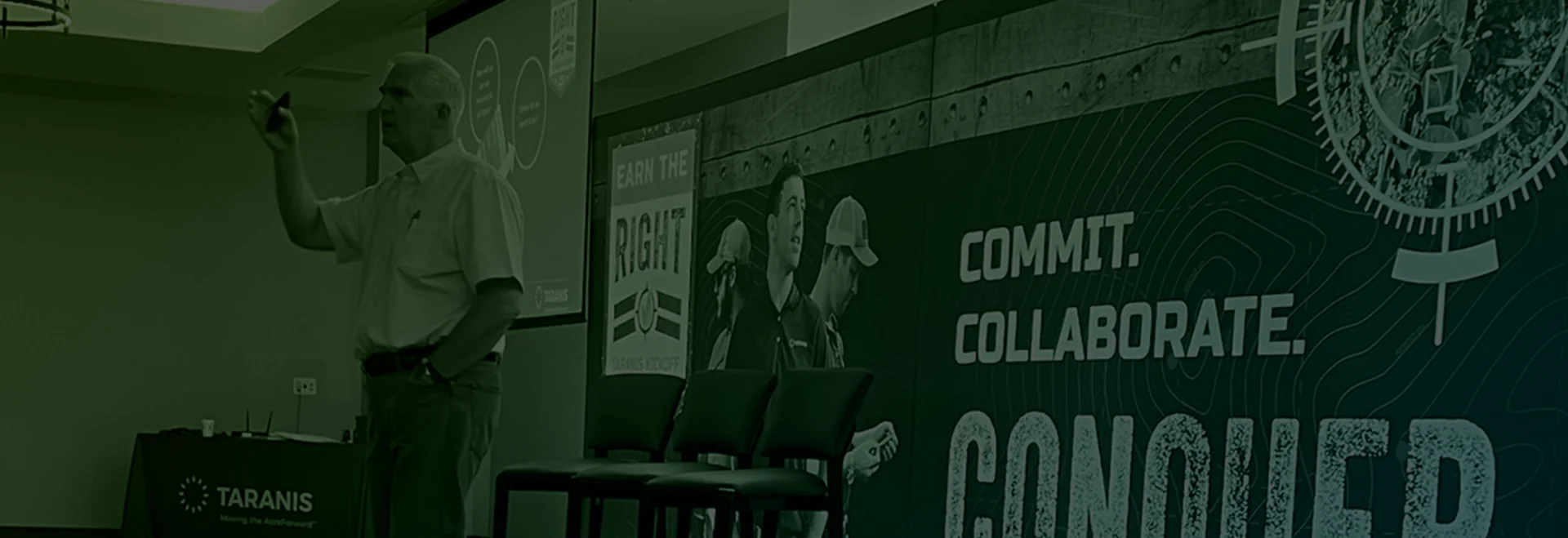
“Sales is not about explaining your value. Nobody cares about your why. They care about their own,” Dr, Scott Downey, Director of the Center for Food and Agricultural Business and Professor in the Department of Agricultural Economics at Purdue University told a packed conference room at the 2025 Taranis Sales Kickoff in June.
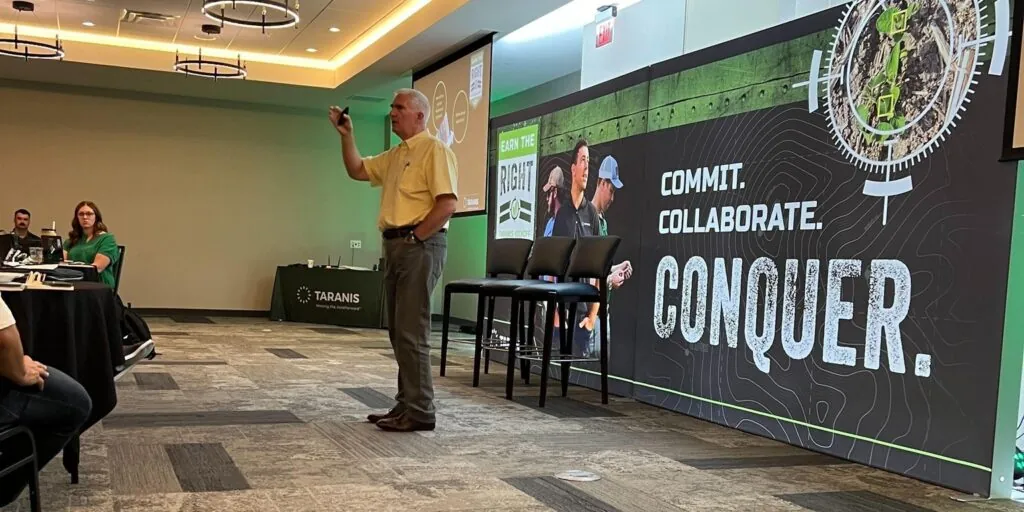
The statement, Dr. Downey says, has laid the foundation for his approach to sales training throughout his career.
“Nothing is truer in agriculture,” he says, “than finding the “why” of your customers. They are all different, they all have different operations, and the “why” for all of them is a little bit different. Learn that “why” and you can help solve their problems.”
With more than 15 years of experience in sales leadership, Dr. Downey says that he brings his own thinking to his role on the Purdue team. He is a voice in understanding buyer decision processes, sales strategies and developing sales management.
During his presentation, Dr. Downey challenged traditional sales approaches – they don’t matter. What does matter is understanding your customer’s perspective.
“It’s not about memorizing product features or benefits. It’s about asking good questions and actively listening to your customer’s needs,” he says.
To listen and understand, Dr. Downey introduced two cognitive systems that he says influence decision-making:
System 1: This system focuses on fast, almost automatic, intuitive decision-making with little to no effort. This mode of thinking allows us to make quick decisions and judgements based on patterns and experiences.
System 2: This system is slow and deliberate. It requires effort and additional thought. We use this type of thinking for problem-solving and decisions that require more analytics.
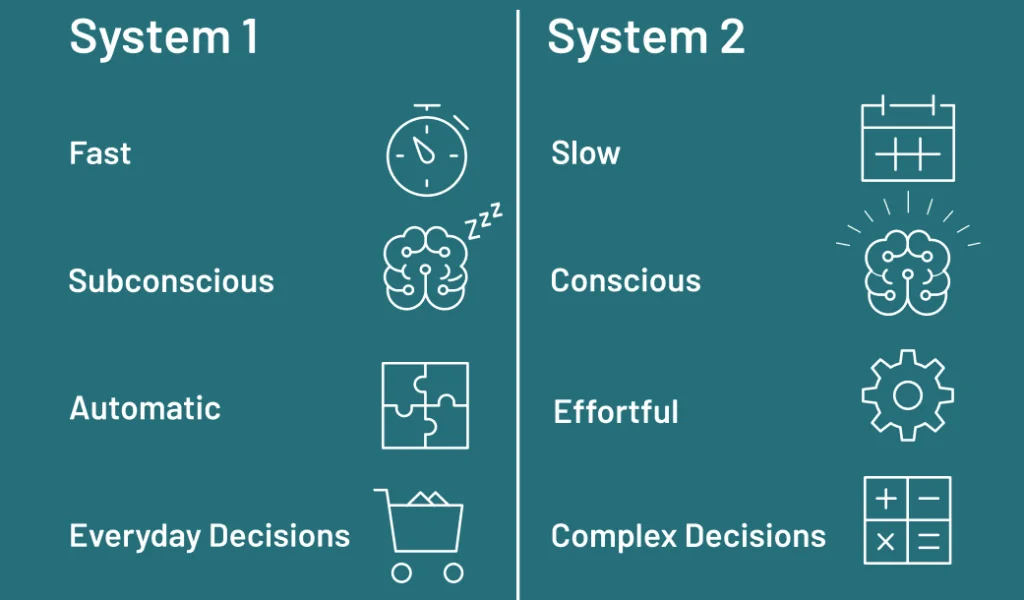
Both are effective, but clearly call out situations farmers encounter every day that require alternating between the two systems. When we learn to alternate between the two systems as problem solvers for the farmers we serve, everyone wins.
This understanding of cognitive processes is crucial in sales, according to Dr. Downey. He pointed out that in times of complexity or uncertainty, people often default to what they’ve always done.
“We are in a world today that has more complexity in it than any time in history,” Dr. Downey noted. “Every day, we create six petabytes of new knowledge. How are you supposed to work with that?”
The challenge for us all is utilizing both new and old information to arrive at a reasonable, more fact-based conclusion.
“Experience without data is just someone’s opinion. Data without experience is just numbers. The best decision-making comes when we bring experience and data together,” Dr. Downey shared. “Those are the best outcomes and the space that agriculture should work in.”
The challenge, Dr. Downey says, is helping customers activate and engage their System 2 thinking when making decisions or analyzing new technology. And it’s a challenge that doesn’t singularly lie with the farmer.
“Sales is not difficult conceptually; it’s difficult in practice. When you have two systems in your brain at the exact same time, both fighting for the decision-making opportunity, compiled with the speed at which decisions have to be made, even we, as salespeople, aren’t always taking the time to engage System 2,” he says. “But we need to. Get to know your customers. Become invested in their operations and their family. Help them solve their challenges.”
One of the key takeaways from Dr. Downey’s presentation was his redefinition of service in sales.
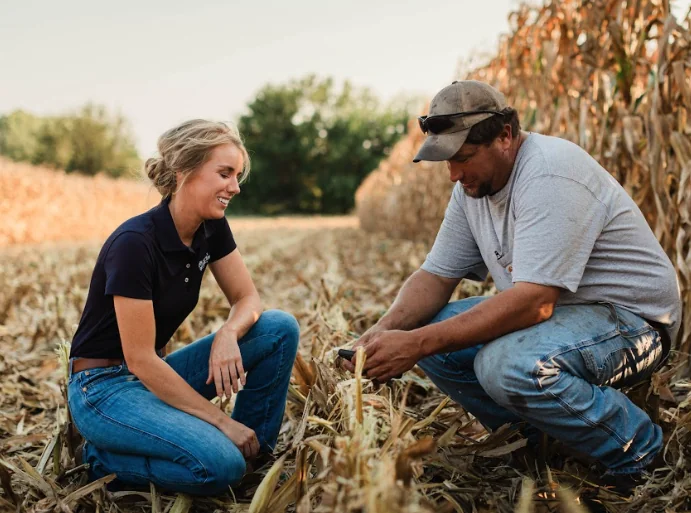
“Service is defined as when they see someone else helping them accomplish their goals,” he told attendees. “Two things are necessary for service. One, it has to help them accomplish my goals or move towards them. And two, they have to be able see it. If I don’t see it, it might as well not have happened.”
Putting resources, that farmers can see, towards accomplishing a farmer’s goals, builds trust and care. According to Dr. Downey, it also defines a farmer’s perception of service.
He outlines the approach to creating true service through sales in his book “Proselling: A Professional Approach to Selling in Agriculture and Other Industries” where he has developed practical tools for sales professionals – a process that has been adopted by many Fortune 300 companies and presented globally, he shares.
“Sales and service are about understanding customer needs, engaging in meaningful dialogue with customers, and providing genuine value that they can see,” he offered at the conclusion of his presentation.
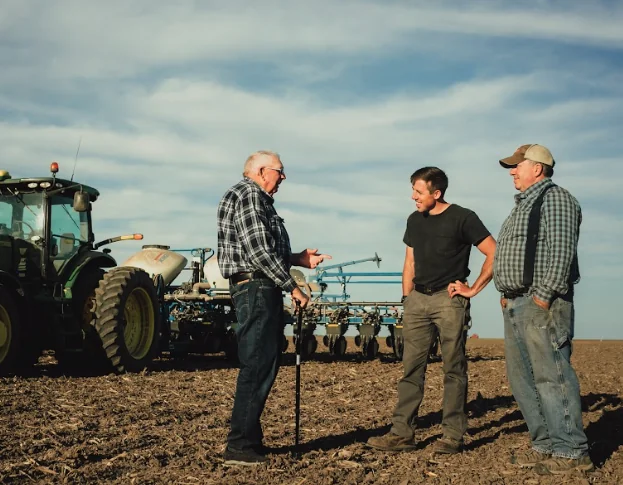
At Purdue, Dr. Downey teaches sales and marketing courses to over 300 undergraduate students each semester. He is a fellow of Purdue’s Teaching Academy and has received numerous awards for his teaching excellence, including the 2012 Richard Kohls Outstanding Undergraduate Teaching Award and a national teaching award from the Agriculture and Applied Economics Association in 2011.
He received his bachelor’s degree from Purdue University in 1985, an MBA from Cal Poly in San Luis Obispo in 1991, and completed his doctorate at Purdue in 2007, focusing on consumer behavior and the relationship sales preferences have on buyers. He is clear to discern: “I am not an economist. I am a behaviorist.”
In addition to his academic work, Dr. Downey is a frequent speaker and consultant for agribusiness industry sales teams. His innovative thinking around concepts of discovery and co-created value has made him a sought-after expert in the field.

As the Center for Food and Agricultural Business Director, Dr. Downey leads initiatives that bridge academic research with practical industry applications – initiatives that help to grow and develop the next generation of salespeople and leadership.
“Sales is making a presentation. It’s not that hard to make presentations. What’s hard is asking good questions and then listening to the results of that and changing what you do on the fly to better serve that potential customer.”

Cutting your technology spend when commodity prices are low may be a nail in the coffin for your crop’s yield potential and a forfeiture of the opportunity to save input costs with dialed-in, precise application.
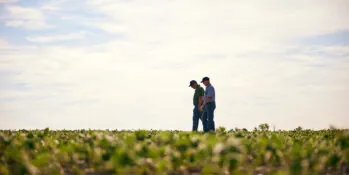
“The difference between crop scouting and crop intelligence can be related to having a basket of berries or having a baked berry pie, sliced and ready-to-eat on a plate in front of you,” says Mark Bradke, Iowa-based Taranis Regional Account Manager. “I would rather have the pie.”
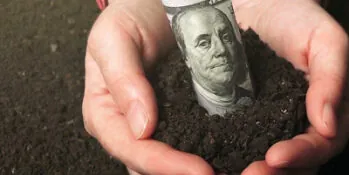
A new strategic partnership between Taranis and Steward Link is easing the burden of program application and validating implemented conservation practices —unlocking significant revenue potential for growers.